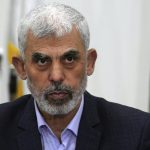
Jonathan Conricus is a respected authority on Middle Eastern politics and conflict, known for his nuanced understanding of military, diplomatic, and regional affairs. Born in Jerusalem, he was raised in Malmö, Sweden, before returning to Israel at age 13. This dual heritage has given Conricus a unique cultural perspective, enabling him to effectively communicate Israel’s challenges to diverse audiences around the world. He is fluent in Hebrew, English, Arabic, and Swedish, which has served him well throughout his career.
Conricus served 24 years in the Israel Defense Forces (IDF), rising to the rank of Lieutenant Colonel. His military service included combat command roles in Lebanon and Gaza, as well as positions in strategic military analysis and diplomacy. Notably, he was the first Israeli officer to be seconded to the United Nations, where he provided military assessments for peacekeeping missions globally. He later became the IDF’s International Spokesperson from 2017 to 2021, a role in which he managed global communications, directed social media efforts, and appeared frequently in international media to represent Israel’s position during complex and often contentious events.
Beyond his military career, Conricus is currently a Senior Fellow at the Foundation for Defense of Democracies (FDD), focusing on Middle Eastern affairs, particularly Iran, Hezbollah, and broader regional conflicts. He also runs Conricus Communications, his strategic public relations agency, where he offers expertise in crisis management, strategic communications, and media training. Conricus remains a prominent voice for Israel, actively speaking around the world to both Jewish and non-Jewish communities, emphasizing the need for Israel to effectively combat misinformation and defend itself against its adversaries.
His experience as both a military leader and public communicator has made him a sought-after expert for his insights into the dynamics of Middle Eastern conflicts, information warfare, and the evolving diplomatic landscape in the region. His ongoing work, particularly in public diplomacy and strategic analysis, continues to influence discussions surrounding Israel and its security challenges on the international stage


